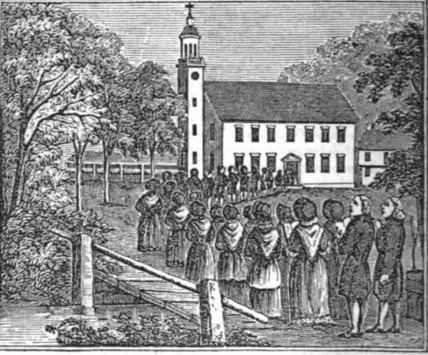Still think we should commit to 980,000 gallons of water per day for another Power Plant ?
Last year in August you could walk across the Blackstone River at River Falls in Woonsocket. Indian folklore claims a common occurrence and the Ocean State power plant only 5 miles away is already tapping the Blackstone for a water source and is half the size of this new Power Plant proposal.
A cold April was a prelude to one the 1762 drought, one of the worst in the history of New England.
It his Eastern Massachusetts hardest, according to Sidney Perley, in his classic 1891 book Historic Storms of New England: Its Gales, Hurricanes, Tornadoes, Showers With Thunder and Lightning.
The drought extended to the southern colonies. George Washington, in a letter dated June 20, 1762, complained about it:
We have had one of the most severe Droughts in these parts that ever was known and without a speedy Interposition of Providence (in sending us moderate and refreshing Rains to Molifie and soften the Earth) we shall not make one oz of Tobacco this year. Our Plants in spite of all our efforts to the contrary are just destroyed, and our grain is absolutely perishing, how it may be in other parts of the Country I can not postively [sic] say, yet I have heard much complaining.

The 1762 Drought
In New England, the weather didn’t warm up until late, and it barely rained at all. The wells were drained, the grass dried up, vegetation scorched.On July 7, a fast was held in Falmouth (now Portland) on account of the drought, but hardly anyone went because they were busy putting out the fires that had broken out.
Fasts and prayer meetings were held in throughout the region, asking God to avert the dreadful evil. On July 24, a cloudburst with thunder and lightning brought relief to Dorchester, but only to Dorchester (now part of Boston). The fires continued, the earth got drier and the vegetation died. By August 1, farmers thought the crops would fail completely.
And then at the end of July, wrote Perley, "A bounteous rain gladdened the earth." It rained again on August 13 and August 16. Three days later, a great rain fell on New England, and from that time on there was no reason to complain about the drought.
The crops were skimpy, however, and hay was so scarce it sold for four times its normal price the next winter. Grain and hay had to be imported from England. Many farmers slaughtered their cows because they couldn't afford the price of hay.
Farmers’ diaries tell the story of the terrible summer when the earth turned to dust.
Jeremiah Weare of York, Maine, called it the 'dry year' and noted hay was very scarce and dear, about $16 to $20 a ton.
Thomas Smith, a farmer in Portland, Maine, described the drought as a "melancholy dry time."” All are now looking for an absolute famine," he wrote. (Smith was a bit of a pessimist.)
For the next 19 days, Smith simply recorded the weather as fair. After the bounteous rain on Aug. 19, he no longer lamented the ‘sore and amazing’ drought.
In Danvers, Mass., it didn't rain until Sept. 22.
Glocester contain many of Rhode Island’s natural resources – a significant reason that so many people have chosen to live in those rural towns. The George Washington Management Area, Casimir Pulaski Memorial State Park, the Buck Hill Management Area, and the Black Hut Management Area are all in the immediate vicinity. There are also in the immediate vicinity numerous pristine bodies of water including Wilson’s Reservoir, Wakefield Pond, Round Lake, Wallum Lake, Pascoag Reservoir/Echo Lake, Pulaski Pond, Bowdish Reservoir and Lake Washington. The Feistein summer camp for city children at the top of Buck Hill will refuse to send children to a harmful area and the Boy Scout / Cub Scout camp on Wakefield Pond would probably do the same.
“To put these natural resources at risk by siting a colossal power plant in the middle of them would be unconscionable,” Wayne G. Barber President of the National Wild Turkey Federartion, Author, Host of the award winning radio program Outdoor Scene wrote.
No comments:
Post a Comment